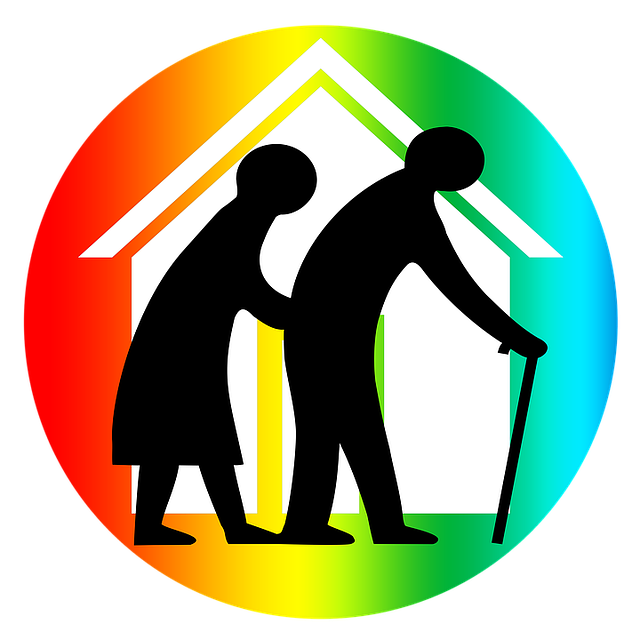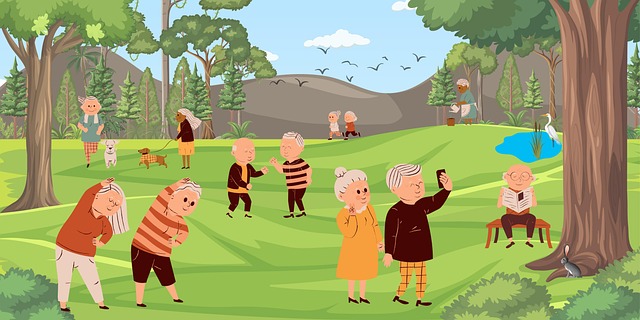Experience Peace of Mind: Top Non-Medical Care in Santa Rosa, Texas
Experience unparalleled peace of mind with our Non-Medical Care services in Santa Rosa, Texas. Say g…….
In the heart of Texas, nestled in Santa Rosa, lies a pioneering approach to healthcare that transcends traditional medical boundaries—Non-Medical Care Santa Rosa Texas (NMCSRT). This innovative concept has gained recognition for its holistic approach, focusing on preventive care, wellness promotion, and community engagement. The article delves into the multifaceted world of NMCSRT, exploring its origins, global impact, economic implications, technological innovations, regulatory framework, challenges, successful implementations, and a glimpse into its promising future. By examining these aspects, we aim to provide a comprehensive understanding of how NMCSRT shapes communities and contributes to global healthcare discussions.
Non-Medical Care Santa Rosa Texas represents a collaborative effort to address diverse health-related needs within a community. It encompasses a wide range of services, including wellness education, mental health support, nutrition counseling, fitness programs, and community outreach initiatives. NMCSRT moves beyond conventional healthcare delivery by emphasizing preventive measures, self-care practices, and the overall improvement of community wellbeing.
Historically, its roots can be traced back to the growing recognition that traditional medical care alone often falls short in addressing complex health issues. Many communities struggled with rising healthcare costs, limited access to specialists, and a lack of holistic wellness programs. In response, forward-thinking organizations and healthcare professionals in Santa Rosa came together to create a model that integrates various healthcare services under one umbrella.
The core components of NMCSRT include:
Community Health Education: Providing workshops, seminars, and awareness campaigns on topics like nutrition, mental health resilience, chronic disease prevention, and self-care practices.
Wellness Programs: Organizing group activities such as fitness classes, meditation sessions, yoga retreats, and community gardening projects to promote physical and mental well-being.
Mental Health Support: Offering counseling services, peer support groups, and access to mental health professionals to address the growing need for mental wellness resources.
Nutrition and Dietary Counseling: Helping individuals understand personalized nutrition plans, healthy cooking classes, and dietary guidance tailored to their unique needs.
Community Outreach: Establishing partnerships with local schools, community centers, and faith-based organizations to deliver healthcare services directly to underserved populations.
The concept of non-medical care has resonated worldwide, leading to its adoption in various forms across different countries. Santa Rosa’s innovative approach has garnered international attention, inspiring similar initiatives globally. Here’s a glimpse into the global landscape:
North America: The United States and Canada have seen a surge in community-based healthcare organizations embracing non-medical care principles. Many cities are implementing wellness hubs that offer a range of services, from yoga classes to financial counseling, as part of their public health strategies.
Europe: European countries like Germany, the UK, and Sweden have incorporated elements of preventive care and holistic healing into their national healthcare systems. For instance, Germany’s ‘Preventive Medicine’ legislation promotes non-medical interventions to reduce chronic disease burden.
Asia: Countries in Asia are also embracing the concept. Japan’s traditional focus on wellness and longevity has led to a robust network of community health centers offering preventive care services. Similarly, India’s Ayushman Bharat scheme promotes ayurvedic and alternative medicine alongside modern healthcare.
Global Trends: Key trends shaping the non-medical care landscape include an increased emphasis on preventive care, rising mental health awareness, technology-driven wellness apps, and collaborative partnerships between healthcare providers and community organizations.
The economic implications of NMCSRT are multifaceted, influencing both local communities and the broader healthcare sector.
Cost Reduction: By focusing on preventive care, NMCSRT has the potential to reduce long-term healthcare costs for individuals and insurance providers. Addressing chronic diseases and promoting wellness can decrease the need for specialized treatments and hospitalizations.
Community Engagement: The involvement of local organizations and businesses in NMCSRT initiatives generates economic opportunities, fostering a sense of community ownership and investment in collective wellbeing.
Tourism and Wellness: Santa Rosa’s success in this area has likely attracted wellness tourists seeking holistic healthcare options, contributing to the local economy through increased tourism revenue.
Private investments in NMCSRT initiatives have been steady, driven by a growing recognition of its potential impact on public health. Grants and funding from government agencies and charitable foundations also play a significant role in supporting these programs.
Job Creation: NMCSRT creates diverse job opportunities, including healthcare educators, wellness coaches, mental health professionals, nutritionists, and community organizers.
Improved Public Health: The overall improvement in community wellbeing can lead to a reduction in absenteeism from work and school, contributing to higher productivity and better educational outcomes.
Reduced Healthcare Disparities: By providing accessible and affordable healthcare services, NMCSRT helps bridge healthcare disparities, ensuring that all community members have access to preventive care and wellness resources.
Technology has played a pivotal role in transforming NMCSRT into a digitally connected, accessible, and personalized healthcare experience. Here’s how:
Telehealth Services: Video conferencing platforms enable mental health counselors and wellness coaches to provide services remotely, making specialized care more accessible, especially for rural or underserved communities.
Wellness Apps: Mobile applications offer personalized fitness plans, meditation guidance, nutrition tracking, and access to educational resources, allowing individuals to take charge of their wellbeing.
Data Analytics: Digital platforms collect and analyze data on community health trends, enabling targeted interventions and personalized care recommendations.
Online Communities: Social media groups facilitate peer support networks, where individuals can share experiences, offer encouragement, and gain access to a diverse range of wellness resources.
To maintain quality and safety standards, NMCSRT operates within a robust regulatory framework:
Licensing and Certification: Professional counselors, coaches, and healthcare practitioners working in NMCSRT programs must obtain relevant licenses and certifications to ensure competence and ethical practice.
Quality Assurance: Regular audits and evaluations of services ensure adherence to evidence-based practices and community needs.
Data Privacy: Strict data protection protocols are in place to safeguard sensitive information collected from individuals participating in NMCSRT programs.
Collaboration with Healthcare Providers: Local hospitals, clinics, and healthcare networks collaborate with NMCSRT organizations to ensure seamless care coordination and referral systems.
Despite its numerous benefits, NMCSRT faces several challenges that require careful consideration and strategic planning:
Funding and Sustainability: Ensuring long-term financial sustainability is a common challenge for non-profit and community-based organizations delivering NMCSRT. Diverse funding sources and innovative revenue models are essential to support these initiatives.
Community Engagement: Building community buy-in and fostering trust can be challenging, especially in diverse populations with varying cultural backgrounds and healthcare preferences. Tailored communication strategies and inclusive practices are necessary to engage all segments of the community.
Professional Recognition: In some regions, non-medical care professionals may face challenges related to recognition and integration into existing healthcare systems. Advocacy and policy interventions are required to promote their role in primary healthcare.
Data Management: As technology advances, managing and securing vast amounts of sensitive health data becomes critical. Robust data management practices and cybersecurity measures must be implemented.
Several communities worldwide have successfully implemented NMCSRT initiatives, achieving remarkable outcomes:
Santa Rosa’s Model: The original concept in Santa Rosa has led to improved community health indicators, including reduced obesity rates, increased mental wellness, and better management of chronic diseases. The program’s success has inspired similar initiatives across Texas and beyond.
Community Wellness Centers: In urban areas like New York City, community wellness centers offer a one-stop shop for various healthcare services. These centers have improved access to care, particularly for underserved populations, leading to better health outcomes.
School-Based Programs: Implementing NMCSRT in schools has shown positive effects on student performance and overall wellbeing. Programs focused on stress management, mindfulness, and physical activity have contributed to higher attendance rates and improved academic results.
Remote Community Support: In Australia, Indigenous communities have utilized NMCSRT principles to address unique health challenges. Cultural-specific wellness programs, delivered through community health workers, have fostered better health outcomes and cultural resilience.
The future of NMCSRT looks bright, with ongoing innovations and global collaborations shaping its evolution. Here’s a glimpse into what lies ahead:
Personalized Wellness: Advancements in technology will enable more personalized wellness plans tailored to individual needs, preferences, and genetic profiles.
Global Partnerships: Increased international collaboration will lead to knowledge sharing, best practice adoption, and the development of global standards for non-medical care.
Integrative Healthcare: NMCSRT is expected to further integrate with conventional healthcare systems, offering a seamless transition between preventive care and specialized treatments.
Research and Evidence-Based Practice: Continued research will strengthen the evidence base for NMCSRT interventions, informing policy decisions and guiding program development.
Non-Medical Care Santa Rosa Texas represents a bold step towards redefining healthcare delivery. Its holistic approach, global impact, and community-centric focus offer valuable insights into addressing complex health challenges. As technology evolves and global collaborations strengthen, NMCSRT is poised to shape the future of healthcare, ensuring that all individuals have access to personalized, accessible, and affordable wellness resources.

Experience unparalleled peace of mind with our Non-Medical Care services in Santa Rosa, Texas. Say g…….

Seeking peace of mind, knowing your loved ones are safely cared for close to home? Non-Medical Care…….

Looking for a cost-effective solution to ensure your loved ones receive the best care as they age? C…….

Experience unparalleled peace of mind with our top-rated Non-Medical Care services in Santa Rosa, Te…….

Reclaim your time and independence with our Non-Medical Care Santa Rosa Texas services. Say goodbye…….

Experience the ultimate convenience and peace of mind with our top-quality Non-Medical Care Santa Ro…….

Say goodbye to worry and hello to peace of mind with our Non-Medical Care Santa Rosa Texas services……..

Tired of the constant stress and juggling act? Say hello to Non-Medical Care Santa Rosa Texas &mdash…….

Looking for a reliable way to simplify life in Santa Rosa, Texas? Our non-medical caregiving service…….

Experience peace of mind with Effortless Senior Care in Santa Rosa, Texas. Our non-medical care serv…….